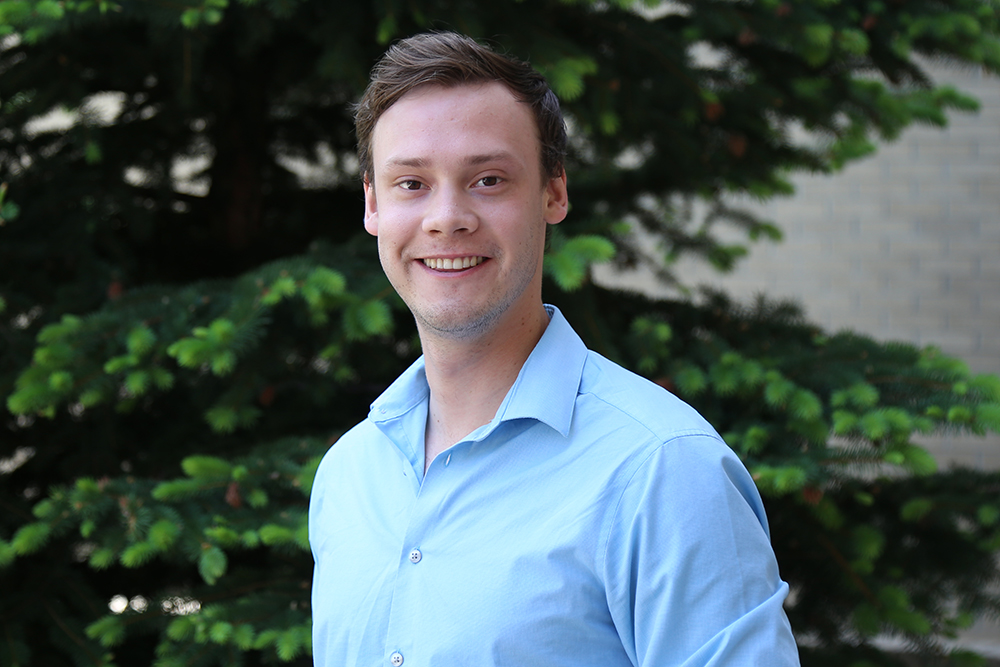GOLDEN, CO, June 9, 2016 —An incoming PhD student in the Nuclear Science and Engineering Program has been awarded a $155,000 fellowship by the  Nuclear University Program of the U.S. Department of Energy to investigate more effective ways of storing and combining energy from various sources.
Nuclear University Program of the U.S. Department of Energy to investigate more effective ways of storing and combining energy from various sources.
Sam Kerber, advised by Mechanical Engineering Associate Professor Mark Deinert, recently graduated from the University of Denver with a degree in physics.
Using computational methods, Kerber will evaluate the performance of a hybrid energy system that includes power generated by nuclear reactors, photovoltaics, and wind turbines. “We’ll optimize these systems for particular geographic regions in the U.S.,” Kerber said. “Then we’ll determine the cost of electricity for these coupled systems as a function of location, and examine their carbon intensity.”
Combining energy from various sources should help reduce carbon emissions. “The trickiest thing is energy storage,” Kerber said. “We can generate all this energy, but we can’t do it all the time. So where and how can we store this energy so that we can use it later when we need it, and do it in a way that’s cost-effective, with existing technology?”
The fellowship includes $5,000 toward a summer internship at a U.S. national laboratory or similar facility. Kerber says a team from the National Renewable Energy Laboratory, located in Golden, has reached out and expressed some interest in his planned research.
Kerber has been interested in green energy and the environment, going so far as so establish a nonprofit focused on environmental sustainability and ecofriendly living in high school.
“I’ve been passionate about that and wanted to mix that with something I like to do, and science-related,” he said.
Despite that interest in science, Kerber started at the University of Denver pursuing creative writing and philosophy, before switching to physics and astrophysics.
“My whole dream in astrophysics was to work for a space agency, take photos of space, and try to do some meaningful science with it,” he said. “It was weird, because I thought it was going to take a really long time for me to get there.”
Kerber worked for the European Space Agency last summer, conducting research at the Leiden Observatory in the Netherlands. “A lot of my dreams in astrophysics had been met and I wasn’t sure where to go from there.”
After completing his PhD, Kerber hopes to either work in industry or a national lab, developing better systems or better ways of generating power.
This year, the NEUP is funding 57 undergraduate scholarships and 33 graduate fellowships to students pursuing nuclear energy-related disciplines at universities across the country, awarding more than $5 million. Kerber received a full scholarship from the Boettcher Foundation for his undergraduate studies.
Contact:
Mark Ramirez, Information Specialist, College of Applied Science & Engineering | 303-384-2622 | ramirez@mines.edu
Kathleen Morton, Digital Media and Communications Manager, Colorado School of Mines | 303-273-3088 | kmorton@mines.edu
